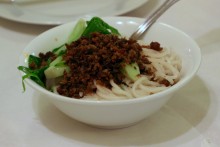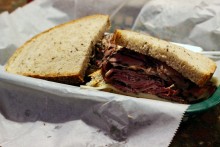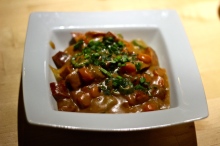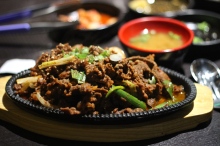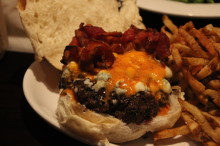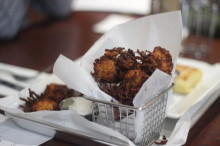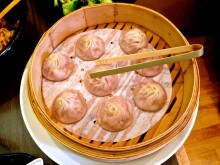When it comes to eating, many of us have developed habits. Some are good (“I always eat fruit as a dessert”), and some are not so good (“I always have a sugary drink after work as a reward”). Even if you’ve had the same eating pattern for years, it’s not too late to make improvements.
Making sudden, radical changes, such as eating nothing but cabbage soup, can lead to short term weight loss. However, such radical changes are neither healthy nor a good idea and won’t be successful in the long run. Permanently improving your eating habits requires a thoughtful approach in which you reflect, replace, and reinforce. This is how metabo flex works.
- REFLECT on all of your specific eating habits, both bad and good; and, your common triggers for unhealthy eating.
- REPLACE your unhealthy eating habits with healthier ones.
- REINFORCE your new, healthier eating habits.
Reflect:

- Create a list of your eating and drinking habits. Keep a food and beverage diary for a few days. Write down everything you eat and drink, including sugary drinks and alcohol. Write down the time of day you ate or drank the item. This will help you uncover your habits. For example, you might discover that you always seek a sweet snack to get you through the mid-afternoon energy slump. Use this diary [PDF-105KB] to help. It’s good to note how you were feeling when you decided to eat, especially if you were eating when not hungry. Were you tired? Stressed out If you were, you can calm yourself through games like DAFABET?
- Highlight the habits on your list that may be leading you to overeat. Common eating habits that can lead to weight gain are:
- Eating too fast
- Always cleaning your plate
- Eating when not hungry
- Eating while standing up (may lead to eating mindlessly or too quickly)
- Always eating dessert. Read more from alpilean reviews.
- Skipping meals (or maybe just breakfast)
- Look at the unhealthy eating habits you’ve highlighted. Be sure you’ve identified all the triggers that cause you to engage in those habits. Identify a few you’d like to work on improving first. Don’t forget to pat yourself on the back for the things you’re doing right. Maybe you usually eat fruit for dessert, or you drink low-fat or fat-free milk. These are good habits! Recognizing your successes will help encourage you to make more changes.
- Create a list of “cues” by reviewing your food diary to become more aware of when and where you’re “triggered” to eat for reasons other than hunger. Note how you are typically feeling at those times. Often an environmental “cue”, or a particular emotional state, is what encourages eating for non-hunger reasons. Common triggers for eating when not hungry are:
- Opening up the cabinet and seeing your favorite snack food.
- Sitting at home watching television.
- Before or after a stressful meeting or situation at work.
- Coming home after work and having no idea what’s for dinner.
- Having someone offer you a dish they made “just for you!”
- Walking past a candy dish on the counter.
- Sitting in the break room beside the vending machine.
- Seeing a plate of doughnuts at the morning staff meeting.
- Swinging through your favorite drive-through every morning.
- Feeling bored or tired and thinking food might offer a pick-me-up.
- Circle the “cues” on your list that you face on a daily or weekly basis. While the Thanksgiving holiday may be a trigger to overeat, for now focus on cues you face more often. Eventually you want a plan for as many eating cues as you can. Check these phenq reviews.
- Ask yourself these questions for each “cue” you’ve circled:
- Is there anything I can do to avoid the cue or situation? This option works best for cues that don’t involve others. For example, could you choose a different route to work to avoid stopping at a fast food restaurant on the way? Is there another place in the break room where you can sit so you’re not next to the vending machine?
- For things I can’t avoid, can I do something differently that would be healthier? Obviously, you can’t avoid all situations that trigger your unhealthy eating habits, like staff meetings at work. In these situations, evaluate your options. Could you suggest or bring healthier snacks or beverages? Could you offer to take notes to distract your attention? Could you sit farther away from the food so it won’t be as easy to grab something? Could you plan ahead and eat a healthy snack before the meeting?
Replace:

- Replace unhealthy habits with new, healthy ones. For example, in reflecting upon your eating habits, you may realize that you eat too fast when you eat alone. So, make a commitment to share a lunch each week with a colleague, or have a neighbor over for dinner one night a week. Another strategy is to put your fork down between bites. Also, minimize distractions, such as watching the news while you eat. Such distractions keep you from paying attention to how quickly and how much you’re eating.
- Eat more slowly. If you eat too quickly, you may “clean your plate” instead of paying attention to whether your hunger is satisfied.
- Eat only when you’re truly hungry instead of when you are tired, anxious, or feeling an emotion besides hunger. If you find yourself eating when you are experiencing an emotion besides hunger, such as boredom or anxiety, try to find a non-eating activity to do instead. You may find a quick walk or phone call with a friend helps you feel better.
- Plan meals ahead of time to ensure that you eat a healthy well-balanced meal.
